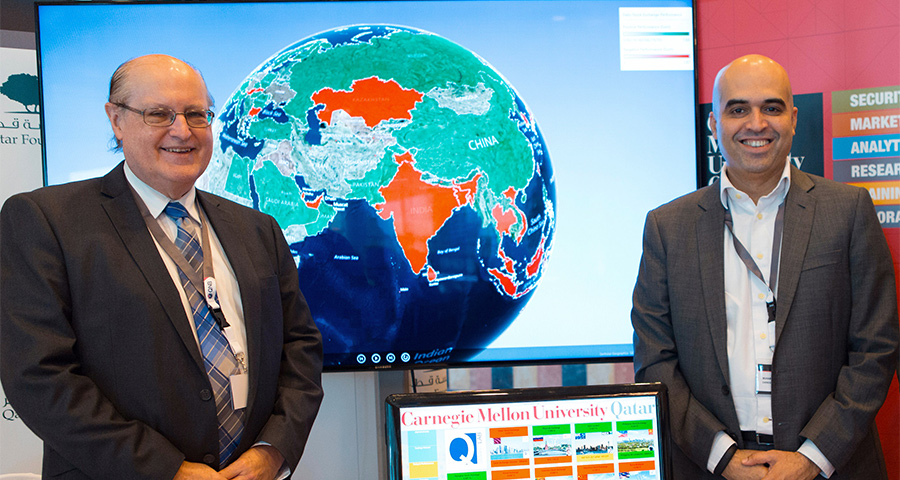
Unique opportunities seen for Qatar Islamic banks as regional markets open up
In Part 1 of an exclusive interview with Gulf-Times, business administration faculty members John O’Brien and Fuad Farooqi discuss how Qatar plays a key role in the growth of Islamic finance. In Part 2 of the interview, they discuss how Qatar can play a role in the growth of Islamic banking in non-Muslim countries. CMU-Q is a Qatar Foundation partner university.
In Gulf-Times, February 19, 2021
The market is expecting that Islamic banks in Qatar do have some unique opportunities for attracting Islamic business to the country, especially now that the regional markets are opening up for business again, according to experts from Carnegie Mellon University in Qatar (CMU-Q).
In a statement to Gulf Times, John O’Brien, senior associate dean, faculty and outreach, and associate professor of accounting and experimental economics, and Fuad Farooqi, area head, business administration, and associate teaching professor, finance, cited information gathered from Qatar Security Market Analytics Research and Teaching Laboratory (Q-SmartLab) at CMU-Q.
“Qatar is unique in the sense that it has separated out the two banking sectors: Islamic and conventional. This immediately provides the advantage of allowing each sub-sector to focus on its comparative advantages.
“Currently, if we look at the market-implied expected growth numbers, we can see that the Islamic banks are expected to grow faster than conventional banks,” according to the experts.
On growth prospects of “specialized Islamic banks,” and their participation in attracting more international companies to Qatar, they said, “it can be argued that the venture capital sector is really at the heart of Islamic finance.”
Citing ‘Musharika’ and ‘Mudaraba’ transactions, they said both are risk-sharing models where a capital owner partners with an entrepreneur to launch a business. With a growing startup sector in Qatar, the experts said “there is tremendous potential for Islamic financial structures to support these businesses.”
On the impact of Covid-19 on the growth Islamic finance in 2020, they said there has been a significant decline in global GDP as a result of the pandemic and the government mitigation strategies to control the health crisis.
According to O’Brien and Farooqi, the banking sector in general is expected to absorb this shock by providing liquidity to households in the economy. In particular, this shock has been disproportionally felt by low-income households, and that “all up these factors have hurt the growth of Islamic finance in 2020.”
Amid Covid-19, both experts shared their outlook for 2021: “Given that a number of countries are now battling a second wave of Covid-19, it is difficult to predict with any certainty when things will return to normal. However, looking at the price of Islamic assets and the growth rate implied by it, we are excited to see that markets remain quite confident about the sector outlook.
“This is not surprising given the inherent lower-risk business model of Islamic banks. Our research has also substantiated this view, as we found the Islamic banks to be lower risk along certain financial metrics. The Islamic finance business model creates a certain resilience in the firms and we expect most Islamic banks to successfully come out of the crisis.”
